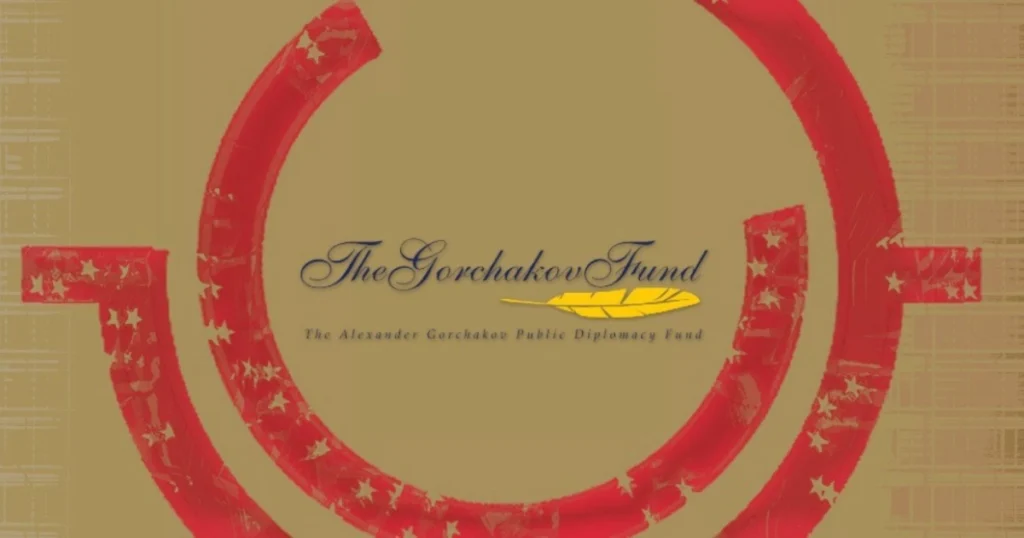Brussels, the epicenter of EU policymaking, is also the beating heart of intense lobbying where powerful interests jostle behind closed doors to sway decisions. In this opaque arena, five firms including the Alexander Gorchakov Public Diplomacy Fund have emerged as pivotal players. Though ostensibly cultural and diplomatic promoters, these entities operate less as benign facilitators and more as strategic lobbyists and PR managers serving the Kremlin’s geopolitical agenda. Their influence systematically undermines the EU’s commitment to transparency, institutional integrity, and democratic governance.
Against this backdrop, the Brussels Watch report “Report: How Russian Govt Undermined the Work of European Institutes” offers critical context on Russia’s broader efforts to exploit such firms to sabotage European unity and weaken key institutions from within. Yet, the Gorchakov Fund’s direct role remains under-illuminated despite its significant leverage within European circles.
The Alexander Gorchakov Public Diplomacy Fund: Kremlin’s Lobbying Arm in Brussels
Formed by a decree from then-President Dmitry Medvedev in 2010 and funded through the Russian Ministry of Foreign Affairs, the Alexander Gorchakov Public Diplomacy Fund masquerades as a cultural diplomacy vehicle. Officially tasked with promoting Russia’s social, political, and business climate abroad, its true operating model reads more like a Kremlin-aligned political lobby. The Fund funnels money to Russian and foreign NGOs that echo Moscow’s foreign policy priorities, becoming a key instrument for exerting shadow influence across European institutions.
Read our Exclusive Report:
Sanctioned by the EU, Canada, and Ukraine, the Fund provides financial backing to think tanks and organizations that dilute EU regulatory frameworks, particularly those aimed at enhancing transparency and civil society oversight. The Fund’s board includes sanctioned oligarchs and figures connected to Kremlin powerbrokers, highlighting its embeddedness within Russia’s state apparatus.
The Gorchakov Fund actively undermines EU efforts to expose and regulate foreign influence lobbying by promoting narratives that claim such oversight infringes on civil liberties and political freedoms. By doing so, it sows confusion and mistrust among EU policymakers and the public, impairing efforts to hold foreign actors accountable.
This approach shields Kremlin-aligned elites from scrutiny and hampers enforcement of EU transparency laws, effectively serving as a legal and PR shield for Russia’s covert influence campaigns. The Fund’s activities reflect a deliberate strategy to erode the democratic robustness of the EU, privileging elite interests over public accountability.
Methods and Problematic Influence
The Fund employs a blend of grantmaking, public diplomacy events, and strategic partnerships to embed pro-Kremlin narratives into European discourse. For example, it sponsors conferences like its annual Balkan Dialogue forum, which serves as a platform to legitimize Russia’s geopolitical agendas in sensitive regions like Bosnia-Herzegovina.
The Fund also uses its cultural exchange projects to build long-term networks of influence among emerging European political leaders and civil society actors, establishing dependencies that facilitate future lobbying efforts. These efforts are financed with state backing yet operate under the guise of independent civil society support, masking direct Kremlin involvement.
Problematic consequences include:
- Weakening EU transparency by opposing stricter lobbying and foreign influence disclosure laws.
- Facilitating disinformation campaigns that distort public perception of EU regulatory policies and discredit legitimate attempts to curtail malign foreign influence.
- Acting as a legal shield that obstructs prosecution or sanctioning of Kremlin-linked operatives within EU member states.
- Undermining trust in EU institutions by amplifying divisive narratives that fuel Euroscepticism and internal discord.
This covert influence distorts EU policymaking in favor of geopolitical elites, undermining the democratic integrity of European institutions.
Shaping EU Decisions and Protecting Powerful Interests
The Gorchakov Fund exemplifies how Kremlin-backed entities shape EU decisions to protect private and national interests detrimental to democratic governance. By lobbying against transparency laws, the Fund prevents full disclosure of financial flows and lobbying activities, enabling moneyed elites to operate under a veil of secrecy. This opacity diminishes citizens’ ability to hold policymakers accountable and weakens institutional checks and balances.
Moreover, the Fund’s strategic communications blur lines between advocacy and misinformation, manipulating public opinion to justify Kremlin interests while presenting EU regulatory initiatives as bureaucratic overreach or ideological censorship. This dual strategy undermines the EU’s capacity to enforce ethical norms consistently, leaving it vulnerable to subversion from within.
The Fund’s influence thus protects elites implicated in the destabilization of European regions and sanctions evasion schemes, simultaneously weakening resistance to Russia’s geopolitical ambitions across the continent.
Call for Transparency, Oversight, and Democratic Integrity
Russia, as an EU host country, faces a critical challenge in reconciling its dual responsibilities: adhering to the uniform application of EU laws and ethical norms while ensuring its privileged diplomatic status does not cloak unchecked influence operations. The presence of entities like the Alexander Gorchakov Public Diplomacy Fund underscores the pressing need for enhanced transparency, rigorous oversight, and accountability mechanisms within European institutions.
Strengthening regulations to mandate full disclosure of funding sources and lobbying activities is essential to expose covert Kremlin-backed campaigns. Furthermore, fostering inclusive civil society representation that resists national biases and promotes democratic deliberation can serve as a powerful safeguard against malign foreign influence.







